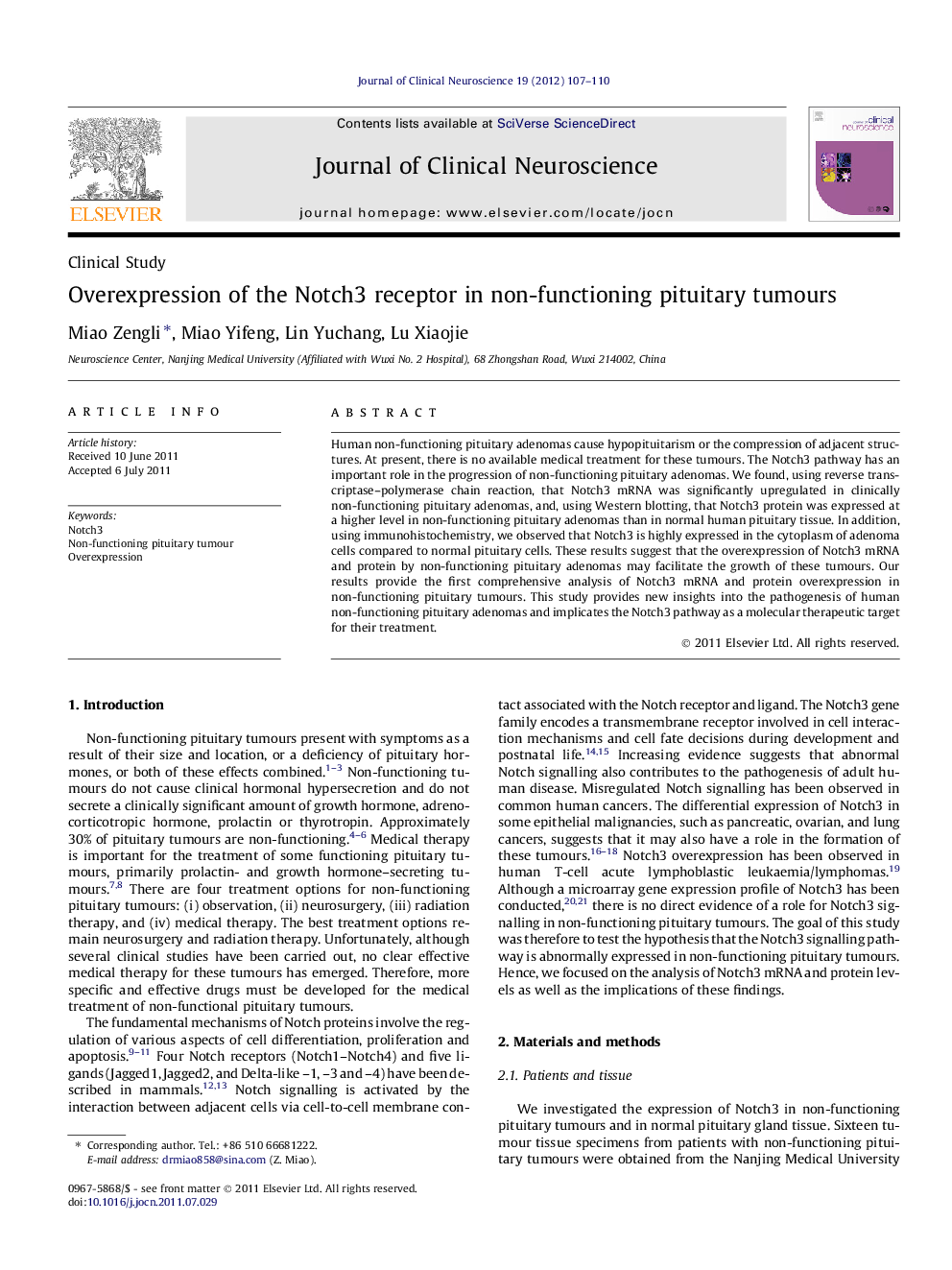| Article ID | Journal | Published Year | Pages | File Type |
|---|---|---|---|---|
| 3060441 | Journal of Clinical Neuroscience | 2012 | 4 Pages |
Human non-functioning pituitary adenomas cause hypopituitarism or the compression of adjacent structures. At present, there is no available medical treatment for these tumours. The Notch3 pathway has an important role in the progression of non-functioning pituitary adenomas. We found, using reverse transcriptase–polymerase chain reaction, that Notch3 mRNA was significantly upregulated in clinically non-functioning pituitary adenomas, and, using Western blotting, that Notch3 protein was expressed at a higher level in non-functioning pituitary adenomas than in normal human pituitary tissue. In addition, using immunohistochemistry, we observed that Notch3 is highly expressed in the cytoplasm of adenoma cells compared to normal pituitary cells. These results suggest that the overexpression of Notch3 mRNA and protein by non-functioning pituitary adenomas may facilitate the growth of these tumours. Our results provide the first comprehensive analysis of Notch3 mRNA and protein overexpression in non-functioning pituitary tumours. This study provides new insights into the pathogenesis of human non-functioning pituitary adenomas and implicates the Notch3 pathway as a molecular therapeutic target for their treatment.
